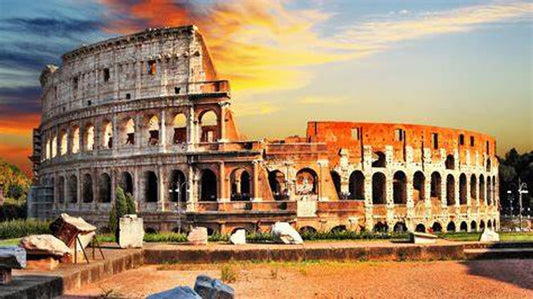Table of Contents
-
Key Takeaways
-
Understanding Spanish Citizenship
-
Eligibility Criteria for Spanish Citizenship
-
Navigating the Application Process
-
Spanish Language and Cultural Exams
-
Spain Golden Visa Requirements
-
Permanent Residency vs. Spanish Citizenship
-
Professional Assistance for Spanish Residency and Citizenship Applications
-
Special Cases: Sephardic Jews and Grandchildren's Law
-
Maintaining and Losing Spanish Citizenship
-
Summary
How to Obtain Spanish Citizenship: Efficiently Step-by-Step Blueprint
Key Takeaways
- Spanish citizenship offers benefits such as EU travel, social service access, and voting rights, and requires a ten-year residency, integration into Spanish society, and may allow for dual citizenship from certain countries.
- Eligibility for Spanish citizenship can be attained through various means such as residency, marriage, descent, and the Spain golden visa program, each with specific criteria and advantages like reduced residency requirements for certain groups and investment opportunities.
- The Spanish citizenship application process includes an online option, language and cultural exams, administrative fees, and may benefit from legal assistance, especially for navigating complex cases or appealing rejections.
Understanding Spanish Citizenship
Becoming a Spanish citizen offers a range of benefits that extend far beyond the borders of the Iberian Peninsula. As a Spanish national, you gain the right to live, work, and travel freely within the European Union, granting you access to the vast economic and social opportunities that the EU has to offer. Additionally, you'll be able to tap into Spain's comprehensive social services and participate in the country's democratic processes by exercising your right to vote in national and EU elections.
At the heart of Spanish citizenship lies the Spanish Civil Code, a legal framework that outlines the intricate requirements and exceptions for acquiring Spanish nationality. The general rule stipulates a ten-year period of legal residency as the primary pathway to citizenship. However, life's choreography often presents alternative routes, such as reduced residency requirements for individuals from certain nations or those of Sephardic Jewish descent.
But becoming a Spanish citizen is not merely about meeting the legal criteria; it's about weaving oneself into the fabric of Spanish society. Applicants must demonstrate a genuine commitment to the country's culture, language, and values, showcasing their integration and contribution to the rich tapestry that is Spain.
One of the unique aspects of Spanish citizenship is the allowance for dual nationality. Spain's inclusive approach enables citizens of Latin American countries, Andorra, the Philippines, Equatorial Guinea, and Portugal to retain their original nationality while embracing their new Spanish identity. This bridge between two worlds offers a sense of belonging and the ability to navigate across borders with ease, maintaining a connection to one's roots while embracing the opportunities that Spanish citizenship provides.
Eligibility Criteria for Spanish Citizenship
The quest for obtaining Spanish citizenship is a journey with multiple paths, each with its own unique landscape. Whether you're following the steady passage of time under the residency route, uniting through the bond of marriage, or heeding the ancestral call of descent, the eligibility criteria for becoming a Spanish citizen are as diverse as the stories of those who embark on this quest.
Italy's Flat Tax: A Lucrative Opportunity for Wealthy Expats
Italy's Flat Tax Regime: A Comprehensive Guide to Pre-Approval for High-Net-Worth Individuals Understanding Italy's Attractive Tax Opportunity for Wealthy Expatriates Italy has emerged as a compelling destination for high-net-worth individuals... Keep Reading →
Residency requirements: The ten-year residency requirement for Spanish citizenship is not just a simple countdown; it's a commitment to Spain's land and its way of life. However, this timeline can be significantly reduced for refugees, nationals from specific countries, and individuals of Sephardic origin. Additionally, the Spain golden visa program offers a fast-track to residency and, eventually, citizenship for foreign investors willing to make a substantial investment in the country.
Citizenship through marriage: Marriage to a Spanish national can be a quick path to citizenship, as applicants only need to reside in Spain for one year before being eligible to apply. However, this route comes with the caveat of renouncing one's previous citizenship, a testament to the commitment required to become a Spanish citizen.
Citizenship by origin or birth: For those with Spanish ancestry or born to Spanish residents, the path to citizenship can be even more direct. Individuals with Spanish lineage can obtain citizenship after just one year of residency, while adults born abroad to Spanish residents have a window between the ages of 18 and 20 to reclaim their Spanish heritage and obtain citizenship.
Navigating the Application Process
Applying for Spanish citizenship is akin to charting a course through a bureaucratic labyrinth, but with the right map and compass, it need not be a daunting experience. The Civil Registry office serves as the starting point for this journey, where applicants can choose to submit their applications online or in person.
Preparing your application: Careful preparation is the key to a successful citizenship application. Ensuring that all documents are impeccably translated into Spanish and free of errors can mean the difference between a streamlined voyage and unforeseen delays. This meticulous attention to detail is essential, as the prize at the end of this journey – Spanish citizenship – is well worth the effort.
Online vs. in-person application: In today's digital age, the online application for Spanish citizenship offers a streamlined path to success, eliminating geographical barriers and reducing the bureaucratic tape that often binds traditional processes. However, for those who prefer a more tangible approach, the in-person application at the Civil Registry office remains a viable option.
Application fees: The financial investment for the journey to Spanish citizenship is marked by a non-refundable administrative fee ranging from 60 to 100 euros. While a small price to pay compared to the priceless benefits of citizenship, this fee is a necessary step in the process of establishing a new life within Spain's borders.
Spanish Language and Cultural Exams
Becoming a Spanish citizen requires more than just meeting the residency or marriage requirements; it also involves demonstrating proficiency in the Spanish language and a deep understanding of the country's culture and values. This is where the DELE A2 exam and the Spanish Constitution exam come into play.
The DELE A2 exam challenges candidates to showcase their linguistic abilities across four key areas: reading, writing, listening, and speaking. This comprehensive assessment ensures that applicants, including Spanish nationals and Spanish parents, can converse with the spirit of Spain in its native tongue, paving the way to obtain Spanish citizenship.
Preparation for this exam is akin to rehearsing for a grand performance. The Cervantes Institute, a renowned institution dedicated to the promotion of the Spanish language, offers a preparation course replete with real exam questions and a mock oral interview, providing applicants with the confidence to step into the spotlight and showcase their linguistic flair.
In addition to the language exam, understanding the Spanish Constitution is a crucial aspect of the citizenship process. This exam tests the applicant's knowledge of the fundamental principles and values that underpin the Spanish state, ensuring that they are ready to embrace the rights and responsibilities that come with Spanish citizenship.
Spain Golden Visa Requirements
The Spain Golden Visa Program is a treasure map for foreign investors, with X marks the spot on investments that open up the realm of Spanish residency and, ultimately, citizenship. The choices are varied – a minimum real estate investment of EUR 500,000, EUR 1 million in financial assets, or a EUR 2 million plunge into government bonds. It's a direct investment into the Spanish economy, and in return, the gates to residency and potentially citizenship swing open.
But the golden visa is not just about signing a check; it's about providing documentary evidence and proving that the investment is not a fleeting affair but a long-term commitment. It's for those who see Spain not just as a place to live but as a land to contribute to and grow with.
The golden visa application process is a two-act play. In the first act, applicants seek a residence visa from their home country, allowing them a year-long sojourn in Spain. The second act sees them apply for a Spanish residence permit, either following their initial year or directly if they've entered on a standard tourist visa. The curtain rises on a new life in Spain typically within 20 days of application submission.
The cast of characters includes not just the main investor but also the supporting roles of spouse or partner and any economically dependent offspring. There's no requirement for a minimum stay to maintain the residence status, but a visit to Spain is necessary to obtain the first permit. It's a flexible arrangement for those whose lives span multiple stages and locations.
Permanent Residency vs. Spanish Citizenship
Choosing between permanent residency and Spanish citizenship involves weighing different degrees of commitment and integration into Spanish life. Permanent residency allows individuals to live, work, and access social services in Spain, offering limited travel rights within the EU. This status is ideal for those who desire a long-term stay without altering their national allegiance.
On the other hand, Spanish citizenship opens the door to full participation in Spanish society, including unrestricted EU travel and voting rights in national and EU elections. This level of commitment not only allows for a deeper connection to Spanish culture and community but also extends the sense of belonging and identity as a full member of society. For those looking to fully embed themselves into Spanish life, citizenship offers the most comprehensive benefits and opportunities.
Professional Assistance for Spanish Residency and Citizenship Applications
Navigating the complexities of applying for residency or citizenship can be daunting. Engaging a professional firm such as Imperial Citizenship provides crucial guidance and expertise, ensuring that the process is handled efficiently and correctly. These experts act as navigators, steering applicants through the labyrinth of paperwork and regulatory requirements.
Their services are invaluable in managing detailed aspects such as the compilation of necessary documents, meeting specific legal criteria, and adhering to tight submission deadlines. They also provide strategic advice on how to enhance the likelihood of application success, based on a deep understanding of Spanish immigration law and procedures. Moreover, these professionals can help mitigate any potential obstacles, providing timely interventions to ensure a smooth and swift resolution. This professional assistance is especially beneficial for those unfamiliar with the legal and bureaucratic nuances of the Spanish immigration system, making the path to obtaining residency or citizenship clearer and more navigable.
Special Cases: Sephardic Jews and Grandchildren's Law
For descendants of the Sephardic Jews, the road to Spanish citizenship weaves through the storied history of Spain itself. The country offers a special pathway to citizenship for those who can prove their links to Spain and demonstrate their knowledge of its language and culture. Similarly, the Grandchildren's Law is a bridge to the past, connecting grandchildren of Spanish citizens to their ancestral roots and offering them a chance to claim their Spanish heritage.
These special cases reflect Spain's recognition of its historical tapestry and its commitment to restoring the bonds broken by time and circumstance. It's an invitation to those with Spanish blood coursing through their veins to reclaim a part of their identity that was once lost but can now be found.
Maintaining and Losing Spanish Citizenship
Spanish citizenship, once obtained, is like a precious heirloom that must be cherished and actively maintained. Regular use of the Spanish nationality and expressing the intent to keep it are akin to polishing this treasure to keep it gleaming. For those from countries with dual nationality agreements with Spain, the process is simplified, as no formal declaration of intent to retain Spanish citizenship is needed.
However, the sheen of this status can tarnish if one acquires another nationality and establishes residence abroad, particularly for naturalized citizens. It's a delicate balance, where even a single misstep could lead to a loss of Spanish citizenship. As such, ensuring to declare the intent to retain it within the stipulated window, or ensuring that the loss does not occur during a period of war, are essential precautions to safeguard this valuable status.
Summary
Embarking on the journey to become a Spanish citizen is a venture rich with cultural immersion, legal intricacies, and personal transformation. From understanding the nuances of Spanish nationality law to navigating the application process and embracing the Spanish language and culture, every step brings you closer to the coveted Spanish passport.
With the right preparation, knowledge, and perhaps the guidance of expertise, obtaining Spanish residency and then citizenship can be a smooth and rewarding experience. May the pride and joy that comes with being a Spanish citizen inspire you to take the first step on this exciting path.






